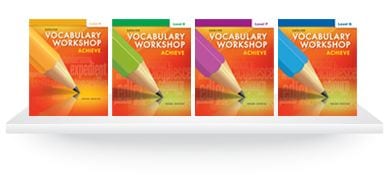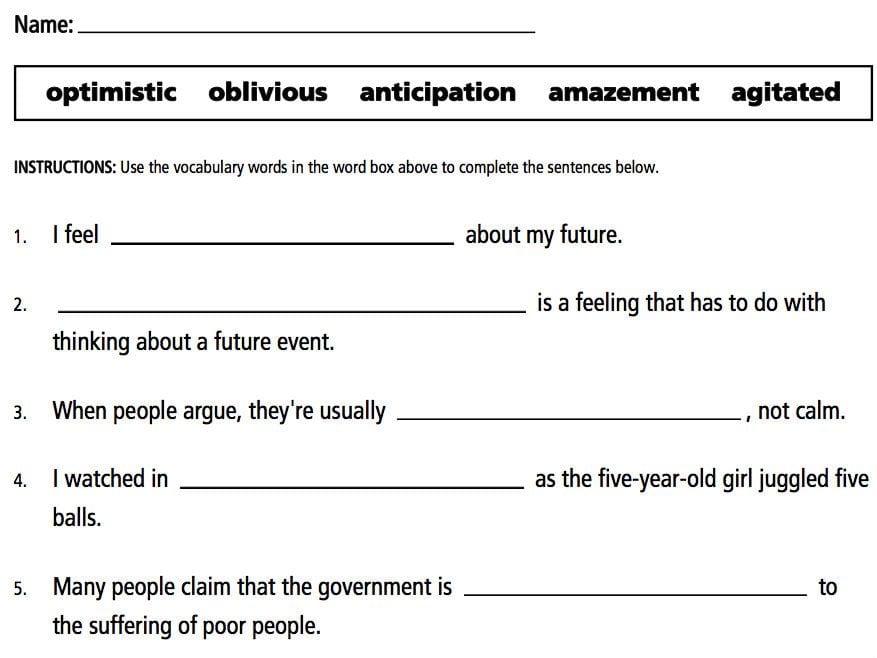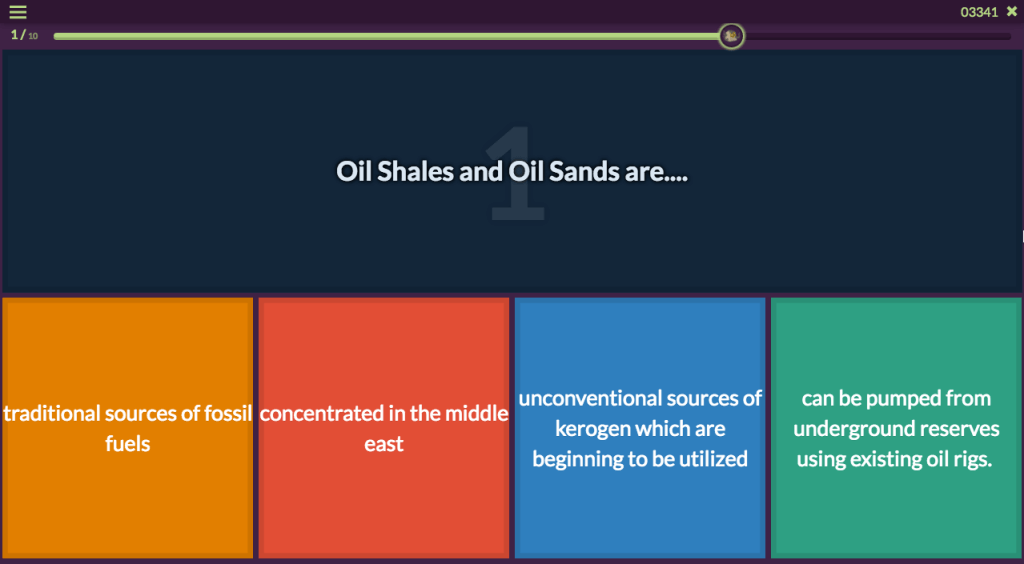Over the years, my vocabulary teaching has matriculated through so many eras. The same can be said about my assessments. Let me walk you through what I’ve done in the past and, ultimately, where I am today.
- Workbook Activity Completion. We never discussed much about vocabulary in pre-service teaching classes, so my first era of teaching vocabulary assessment was workbooks. Have students work through them, give them the grade at the end of the week. The end.
Benefits: Some workbooks I used did have some good passages that emphasized using context clues. Students were using and thinking about the words (for those who actually did them).
Downsides: Maybe some of the activities were good, but I never knew how much students retained by just assessing their workbook activities. And let’s be honest: I was young, naive, and there was definitely some “teamwork” happening, and by that, I mean straight out copying each other’s work.
2. Fill in the Blank & Sentence Writing Tests. Eventually I admitted workbooks weren’t enough, and I added tests where students had to fill in the blank with vocab words and then write sentences.
Benefits: This did elevate assessments to DOK 2 & 3. Students had to demonstrate ability to use the words in their writing, and I did provide question prompts, such as “What would you extol? Why?” for their sentences so they weren’t writing in a vacuum.
Downsides: The sentence idea was an improvement, but then I tried to do what other teachers were doing and took off credit for grammar mistakes, too. Often, students may have used the word correctly, but then I’d take points off for grammar. I struggled with this. What was I trying to assess here? Vocab AND grammar? Or just vocab? And if it is both, where was the line for acceptable, risk-taking grammar errors, such as forgetting commas after an introductory phrase? Should they be deducted a point just because they forgot a comma when another student wrote a simple sentence that didn’t require commas?
3. Completely Objective Tests. Full disclosure: as much as I’d like to justify this move, the cold truth is I was lazy. I wrote an online test, students took it, the computer scored it, and boom, I put it into the gradebook. I will say the questions I wrote went beyond DOK1 to DOK2. There were fill-in-the-blanks, synonyms and antonyms, T/F statements that contained both words, and some questions that provided three sentences and asked for students to choose the one where the word was used correctly. One bright spot, though: I stopped using words from vocabulary workbooks and selected words that connected to our content that we were reading, so students were actually encountering the words and we could talk about them in class discussions.
Benefits: Yes, there was one good thing that came out of this. Students could retake a vocab quiz as many times as they needed: for the first time they had the option to achieve mastery.
Downsides: Again, no DOK3. Students never had to demonstrate their ability to use the word, either orally or in written format.
4. My Current Assessment: Short Story OR Occupation Application. Two or three years ago, I told myself to stop taking the easy way out. I needed a way to assess students where they were using the words–after all, wasn’t that what I wanted them to do out in the world? I also wanted a way to incorporate more student choice. This was the result. Students could either choose to write a short story using the words OR they could use the words in the context of one of four occupations. Afterwards, students could rewrite or make corrections until they reached the mastery level they wanted. I also turned my focus onto the word usage itself; I would mark some grammar errors so they could see them, but I stopped stressing about grading those, too.
Benefits: Students are actually using the words in writing, they have some choices, and they have the option to make corrections–and many of my students are doing just that. In fact, it’s better than retaking an entire quiz for a couple of questions that they missed. They’re making changes only on the ones they missed. Plus, there is student choice, which leads to differentiation. Some choose to try the short story route, which is more difficult. Other high-level learners take the challenge to only write their sentences in ONE occupation.
Downsides: I’m always wondering what else I can use to challenge more students. Should I allow higher-achievers to choose some of their own words? Except when I’ve done that, they sometimes choose words that aren’t well-used in our lexicon. Should we have 15 words a unit and students choose the 12 they want to focus on?
That’s why this continues to be an evolution. This is where I am now, and who knows what my thoughts on vocabulary assessment will be then.






Leave a Reply